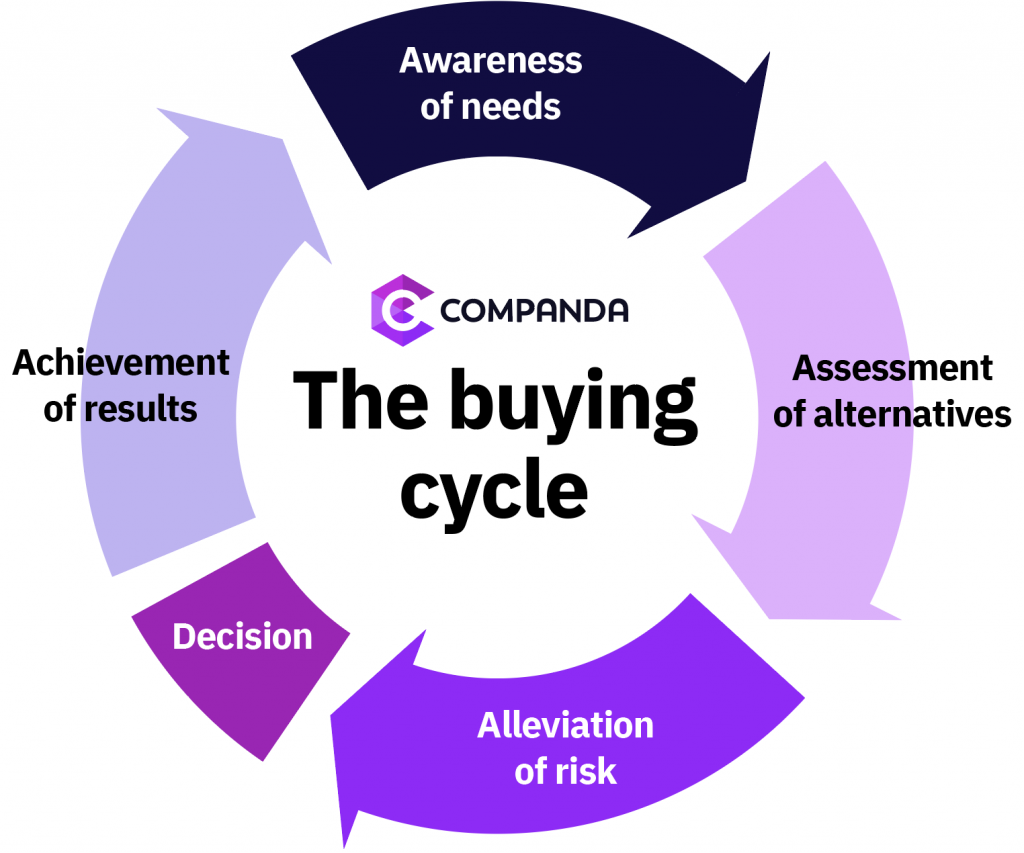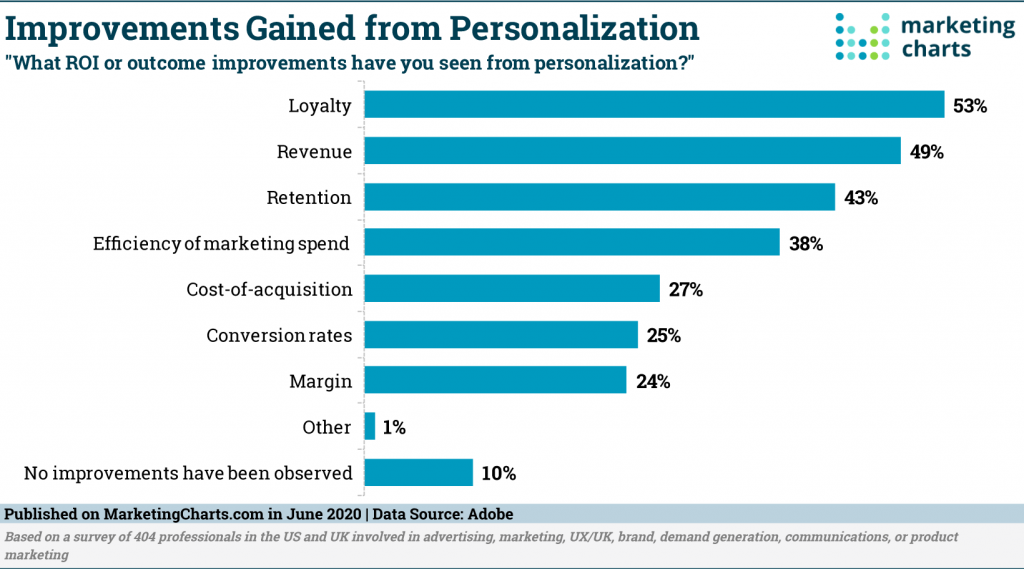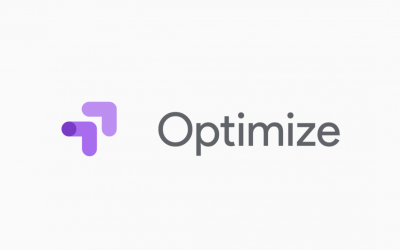In recent years, personalization has been on the rise and website visitors are expecting website content to be custom tailored for them. The covid-19 pandemic is accelerating this trend as people spend more time in the digital domain due to lockdown and other measures.
But why should you consider adopting personalization? In this article we share four reasons why B2B companies are adopting personalization and why it should be part of your b2b marketing strategies too.
77% of B2B buyers state that their latest purchase was very complex or difficult
The average B2B buying cycle takes much longer than in B2C. An important reason for this is that often more than one person is involved. Gartner research identified six B2B buying “jobs” that customers must complete to their satisfaction in order to successfully finalize a purchase.
By personalizing important touch points you create an experience that aids the B2B buyer decision journey
Each of the stakeholders in a B2B deal has their own needs, experiences and perspectives when it comes to buying your product or service. By personalizing touch points in their buying journey, you create an experience that supports all stakeholders to make the right buying decision.

Personalization delivers 5x to 8x times the ROI on marketing spend
An important goal of the CMO is to employ new marketing strategies and tools to drive growth and reduce costs. McKinsey research reveals that personalization can deliver up to eight times the ROI on marketing spend and therefore has a big impact on the aforementioned goal.
Targeting (potential) customers with advertisements that are unique by either including relevant products, firmographics or customer information is a great way to start with personalization in the “Awareness phase” of the buyer journey.
80% of customers are more likely to purchase from a company that offers personalized experiences
Research from Epsilon states that 80% of customers are more likely to purchase from a company that offers personalized experiences. This supports the goal of CMOs wanting to create a consistent and memorable brand experience across all media.
An often used strategy in the “Assessment phase” of the buyer journey is personalized email marketing using industry data and a personalized website based on IP data.
Personalization has big impact on customer loyalty, sales revenue and customer retention
Research from Adobe amongst 400 marketers shows that personalization has the most positive impact on customer loyalty, followed by sales revenue and customer retention.
In addition, 9 out of 10 respondents say that for every dollar they spend on personalization, they get at least $ 1-2 dollars back, with 9% of the respondents saying they achieve an ROI of 20x or more.

Now over to you
Has your company adopted personalization? What was the most important reason for you to start? Did you encounter any challenges? If you have not started, what is holding you back?
P.S. If you want to learn more about personalization this ebook is a great start: The Kickstart Guide to Website Personalization.


